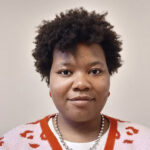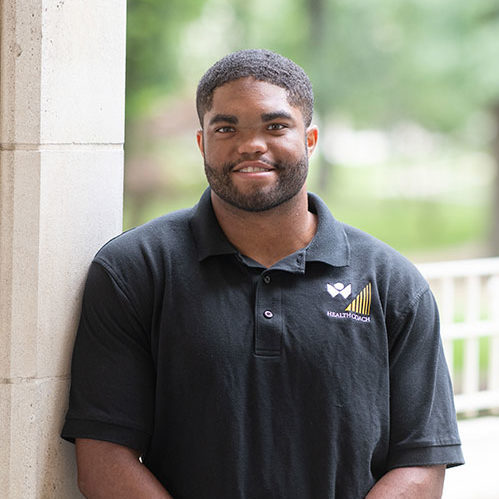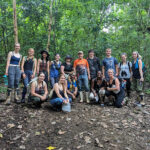
Senior Russell Boston is Making an Impact as a Health Coach

For those with chronic medical conditions, the best hospital visits are the ones they don’t have to make, because they are successfully managing their health at home. That’s the core insight behind the Community Care Network, an innovative collaboration between Wooster Community Hospital and The College of Wooster.
The program identifies patients who have had multiple hospitalizations or potentially avoidable emergency room visits, and have a strong desire to make a change in their health situation. The hospital brings together an interdisciplinary team, which may include a social worker, nurse, dietician, pharmacist, mental health professional, and others to develop a plan of care that will help that person work toward and maintain a healthier lifestyle. But when the patient goes home, the team stays at the hospital. That’s where the college comes in. Students trained as health coaches make weekly, in-home visits to each patient to monitor, assess and report back on their progress.
Russell Boston, a senior biochemistry and molecular biology major, and wide receiver on the Fighting Scots football team, heard about the health coach program when he was a sophomore, right around the time he was deciding he wanted to pursue a career in medicine. He enrolled that spring in the required preparatory course that provides background on major diseases that are significantly affected by lifestyle choices, and helps students develop basic diagnostic skills. By junior year, he was one of almost three dozen student health coaches, each of whom was visiting one or two patients every week.
This past summer, thanks to an APEX Fellowship, Boston was able to spend eight weeks working full-time as a health coach, seeing 20-25 patients a week. Each day began at the hospital, where he would check the schedule to see who he was visiting that day, review the details of each patient’s diagnosis and medications, as well as notes from his last visit, and then make phone calls to remind them that he would be stopping by.
Once at a patient’s home, Boston usually had items to follow up on since his last visit. Did they make it to that doctor’s appointment last week? Are they running low on any of their medications? Then came a head-to-toe assessment. “For a patient with congestive heart failure,” he says, “I’d check for labored breathing and look at the lower extremities for swelling or signs that they’re retaining fluid. For someone with diabetes, you check for foot health, sweating, or thirst.” Boston tailors his approach to each individual patient. “I like to be adaptable,” he says. “You learn how to phrase your questions clearly to get good information.”
Once the basic questions and assessment were completed, “I’d just stick around and talk.” Most of the patients he sees are elderly, and while some live with family, others are all alone, and they look forward to his weekly visits.
Boston and the other health coaches report back on each patient visit to the hospital’s care team, who in turn provide advice and guidance for the next round of visits to maintain and reinforce the patient’s progress.
One of the most rewarding parts of his experience as a health coach, Boston says, “is when you’re about to leave a patient’s home and they say they really appreciate you coming, that the visit has reassured them.” He mentions one patient in particular, and the satisfaction of seeing him progress, “from using a walker and having to use oxygen all the time, to being able to get around with just a cane and no oxygen,” all because “he stays on top of his diet and keeps up with his physical therapy, and has great family support as well.”
The hands-on skills in observation, assessment, and patient interaction that the health coaches develop as part of the Community Care Network are exactly what medical schools are looking for, and graduates of the program report that it has given them a leg up in that next stage of their education.
Boston’s own career goal is to become a sports medicine physician. “But I haven’t decided whether operative or non-operative. I’ll leave that for med school,” he says with a smile.
Posted in Experiential Learning on September 19, 2018.
Related Posts
Related Areas of Study
Public Health
Explore the many options and paths for those who want to be part of the world of health care
PathwayPre-Health
Guidance on course selection, research opportunities and other planning for medical and dental school
Pre-Professional AdvisingBiochemistry & Molecular Biology
Biology and Chemistry combine in an interdisciplinary program for students with a passion for molecular events.
Major

